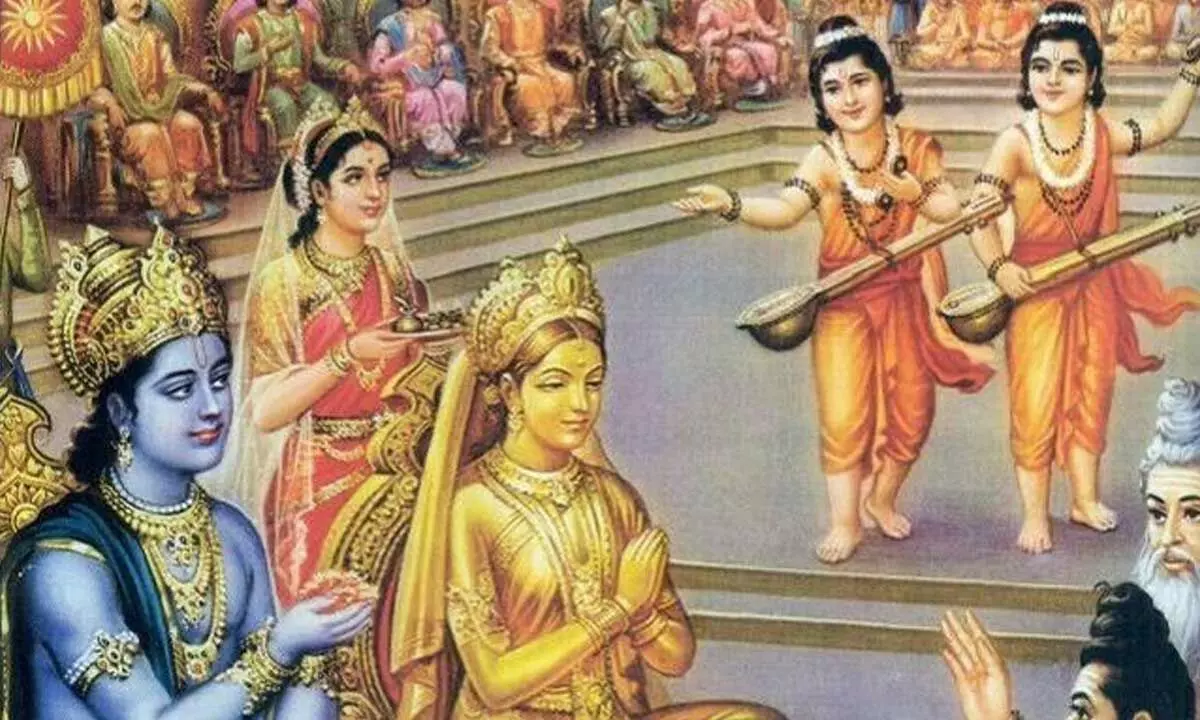Modern Man and Moksha

In many religious rituals we generally see a procedure which must be followed scrupulously.
In many religious rituals we generally see a procedure which must be followed scrupulously. People who know scriptures may follow it, but what about most lay people or those modern young lot or those who are away in western lands and who are unaware of the tradition? Are they to be condemned? The Gita has a whole chapter on such people and assures that sraddha would redeem all actions of a person, whether done as per scriptures or otherwise. The innocent, or imperfect actions, done with sraddha are accepted by God as much as the works done strictly as per procedure.
What is sraddha? All our actions demand a degree of resolve, energy, and earnestness. These qualities are present in all actions. Sraddha needs one more element, faith. This faith is of the nature of trust in the person who is showing the path. In worldly actions we see the result of action but in religious actions we may not see the result. Worldly actions are such as a scientist or a businessman doing a project and seeing the result. In religious actions there are promises of an unseen result such as attaining a heavenly reward known as punyam. Here we must go by faith and follow the word of whatever book we follow. Vedanta tells of a third type of karma in which we experience the promised result, known as Realization, or knowledge of Self or moksha. There is no movement to another place like heaven. It is of the nature of an experiential state. People like Sabari in the Ramayana, or the forester Kannappa and many others are examples of such sraddha. The commentators on the Ramayana explain how Sabari attained moksha by getting the knowledge of Brahman from her gurus.
The Gita divides sraddha into three types, based on the three basic constituents of nature – sattva, rajas and tamas. All the three types produce results, as we see demons performing tapas and getting powers or like the scientists at the Wuhan labs trying to build the killer virus. Such persons are finally condemned but it is the sattvic sraddha which produces the result useful for spiritual progress. All actions commended by religious texts – rituals (yajna), acts of charity (danam) and acts of self-purification (tapas) – are analyzed in the Gita. Rituals involve a prescribed procedure, as we see in vratams, yajnas etc., done by people. Charity too prescribes an honourable way of doing it, respecting the dignity of the recipient. A person’s conscience is the only witness to acts of self-purification, but the effect can be felt by others. The whole gamut of our actions is analyzed in this framework. The gods we choose depend on our disposition. Sattvic people worship sattvic deities whereas rajasic and tamasic people worship those who advocate violence. The three types of food were discussed in an earlier essay.
Sraddha is highly commended in our texts. Figuratively, it is compared to the money which is needed on our journey in self-knowledge. It is compared to the wife of the seeker. We are aware of the episode in the Ramayana in which Rama keeps a golden image of Sita while performing a yajna. All rituals are to be performed by the husband and wife together because the wife is an equal partner in dharma. During marriages the purohit makes us chant three pledges, ‘I abide with you in dharma, in Artha and in kama’. However, moksha is an individual quest. In this quest, the wife is Sraddha.
Sometimes some pundits insist that if you do not wear a dhoti in a particular way, or if you keep the lamp in a particular direction the god is displeased with you. People get discouraged by such remarks and may even stop doing anything. Such directions were designed to ensure elegance and uniformity but not to frighten and discourage devotees. Krishna assures us that what God sees is a pure mind. Purity of mind is by purity of actions. This is by performing all our actions as an offering to the welfare of society around us, not seeking any punyam and heavenly pleasures. We must start somewhere and follow a regimen so that the kids too will pick up good practices.
(The writer is a former
DGP, Andhra Pradesh)














